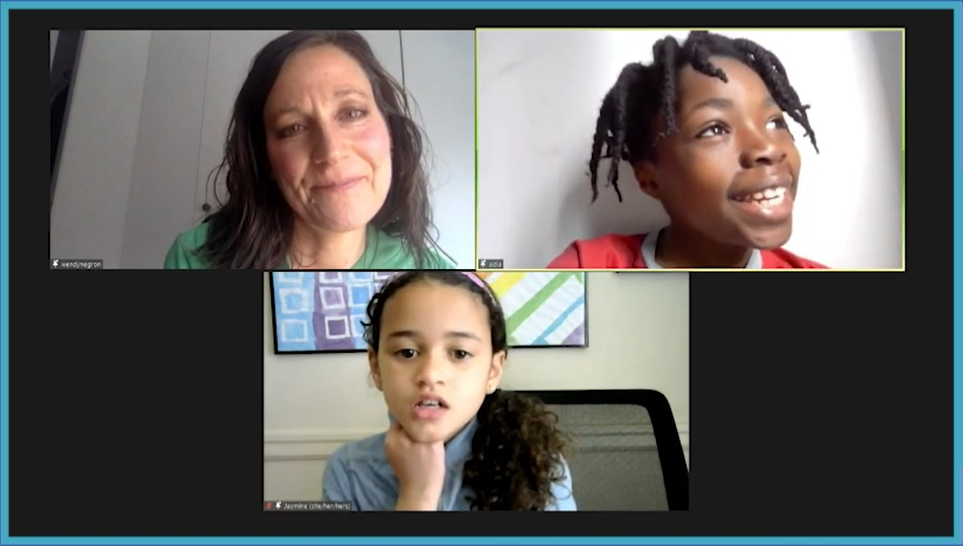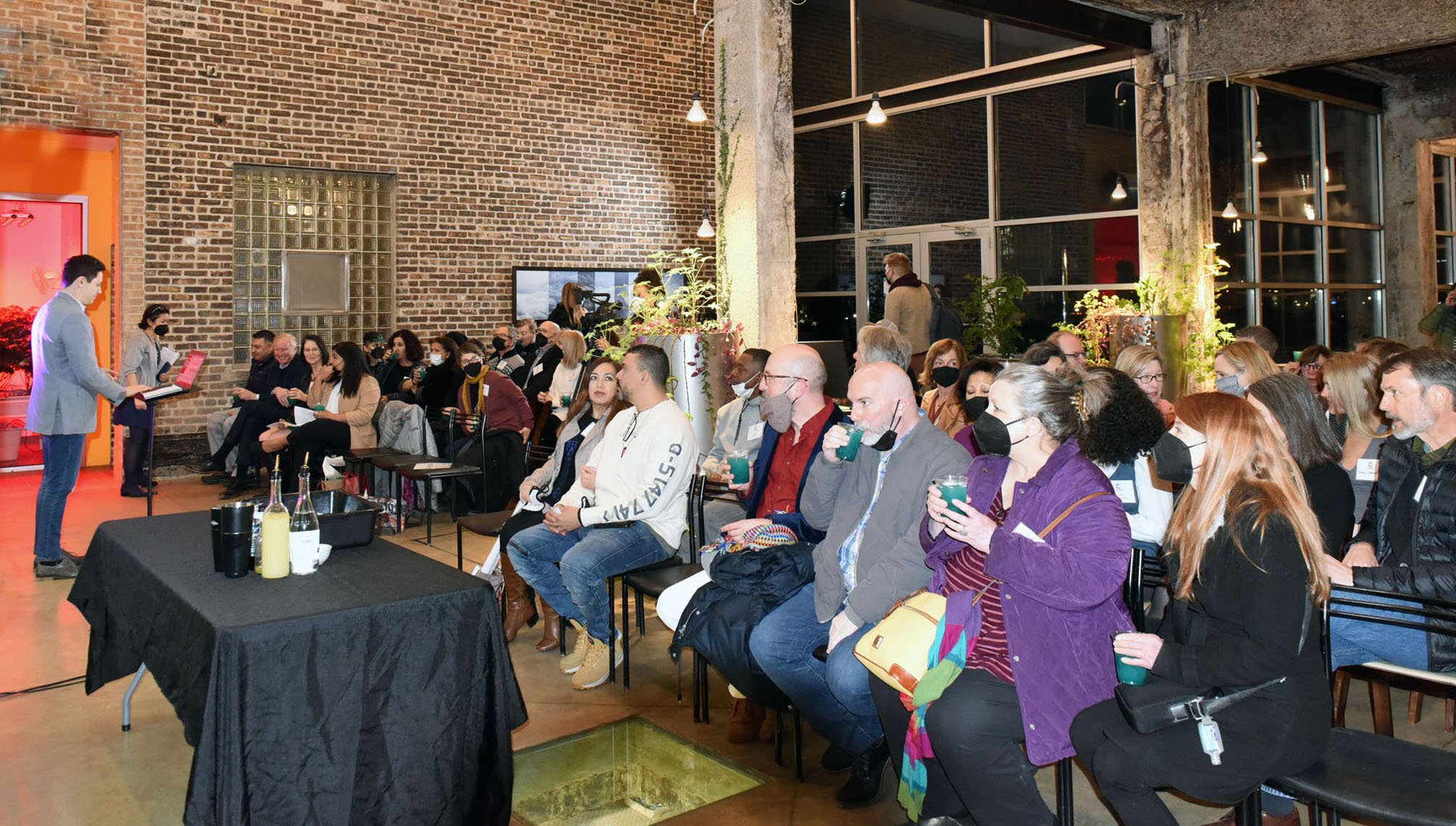
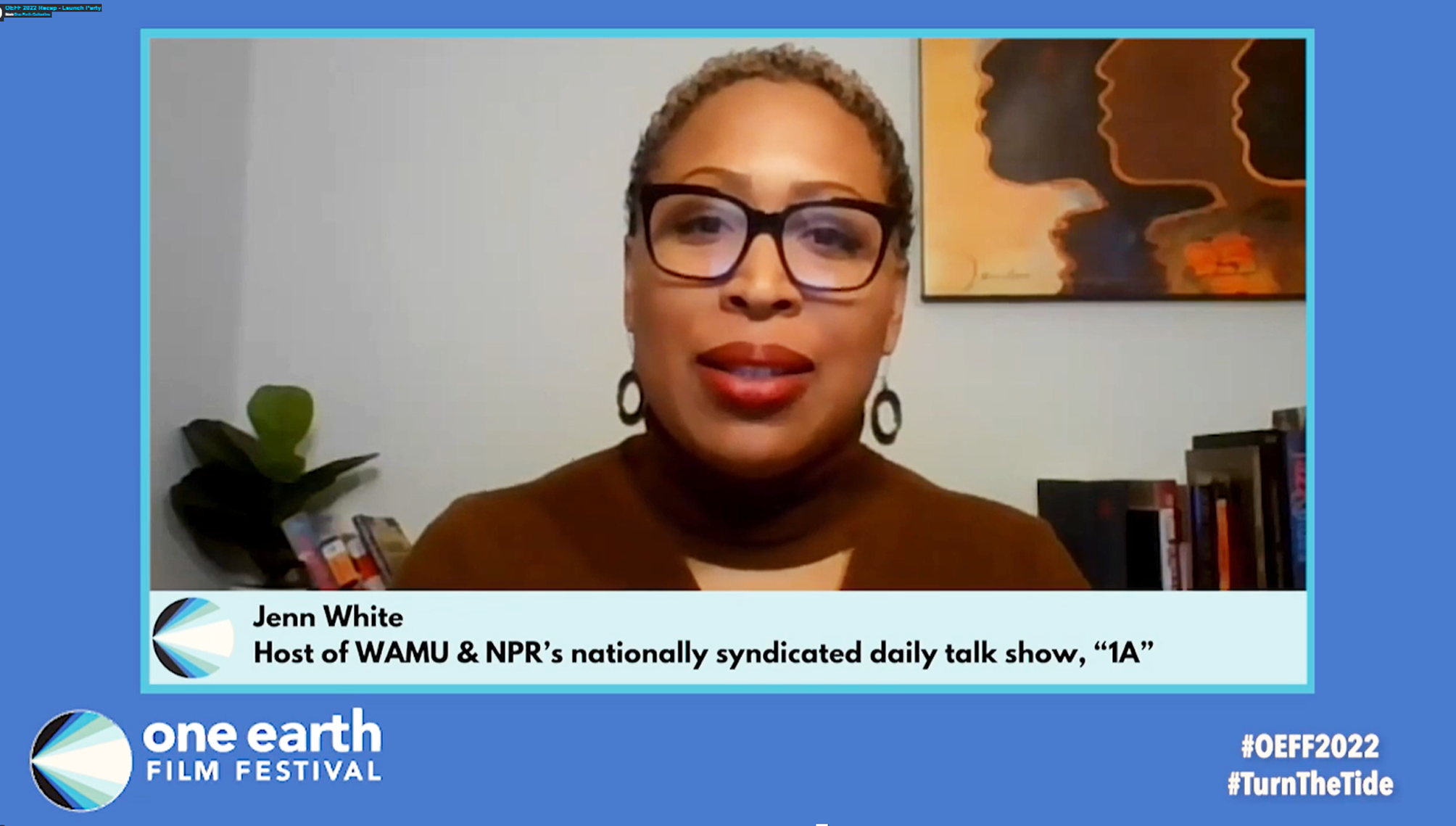
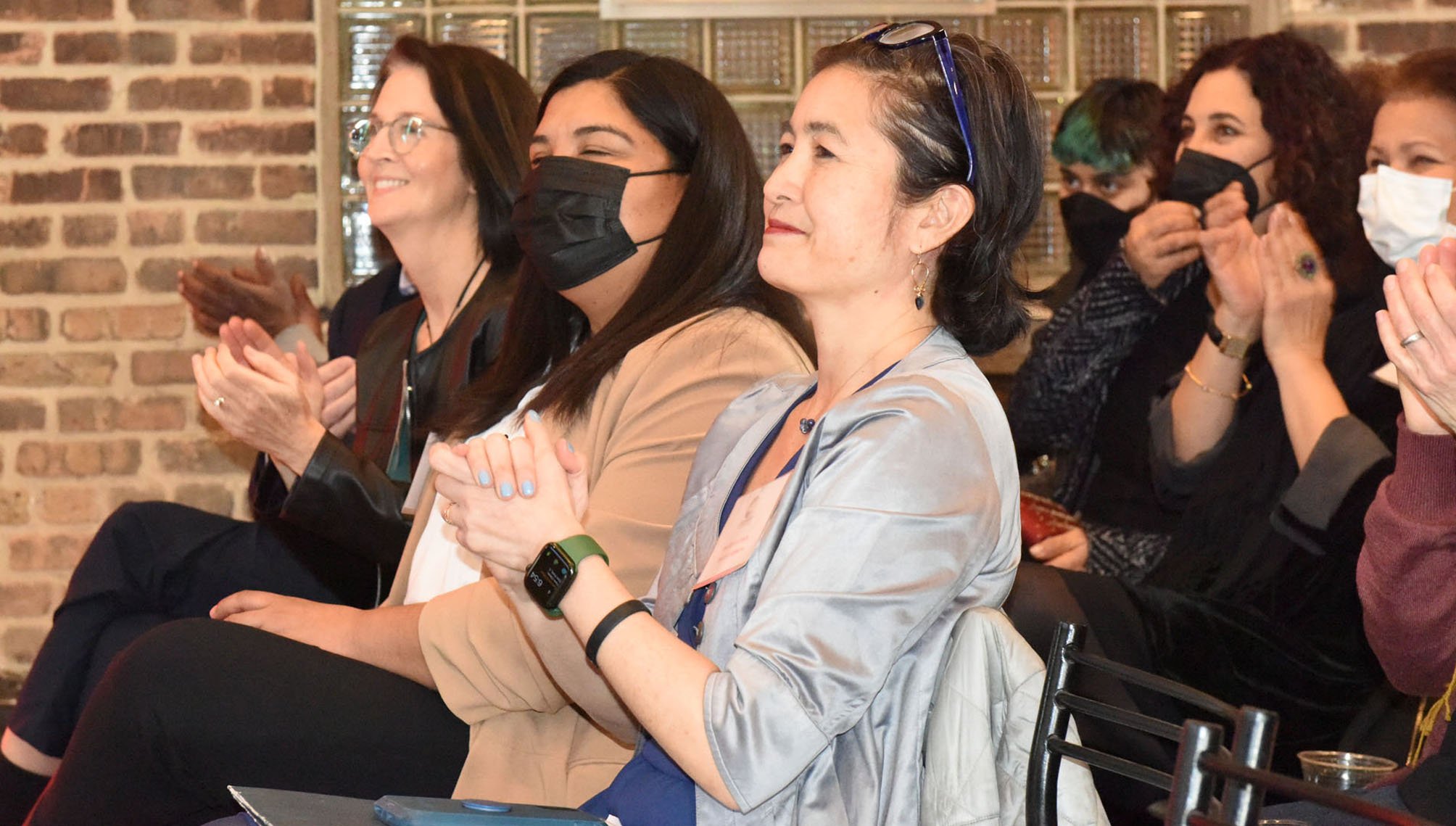
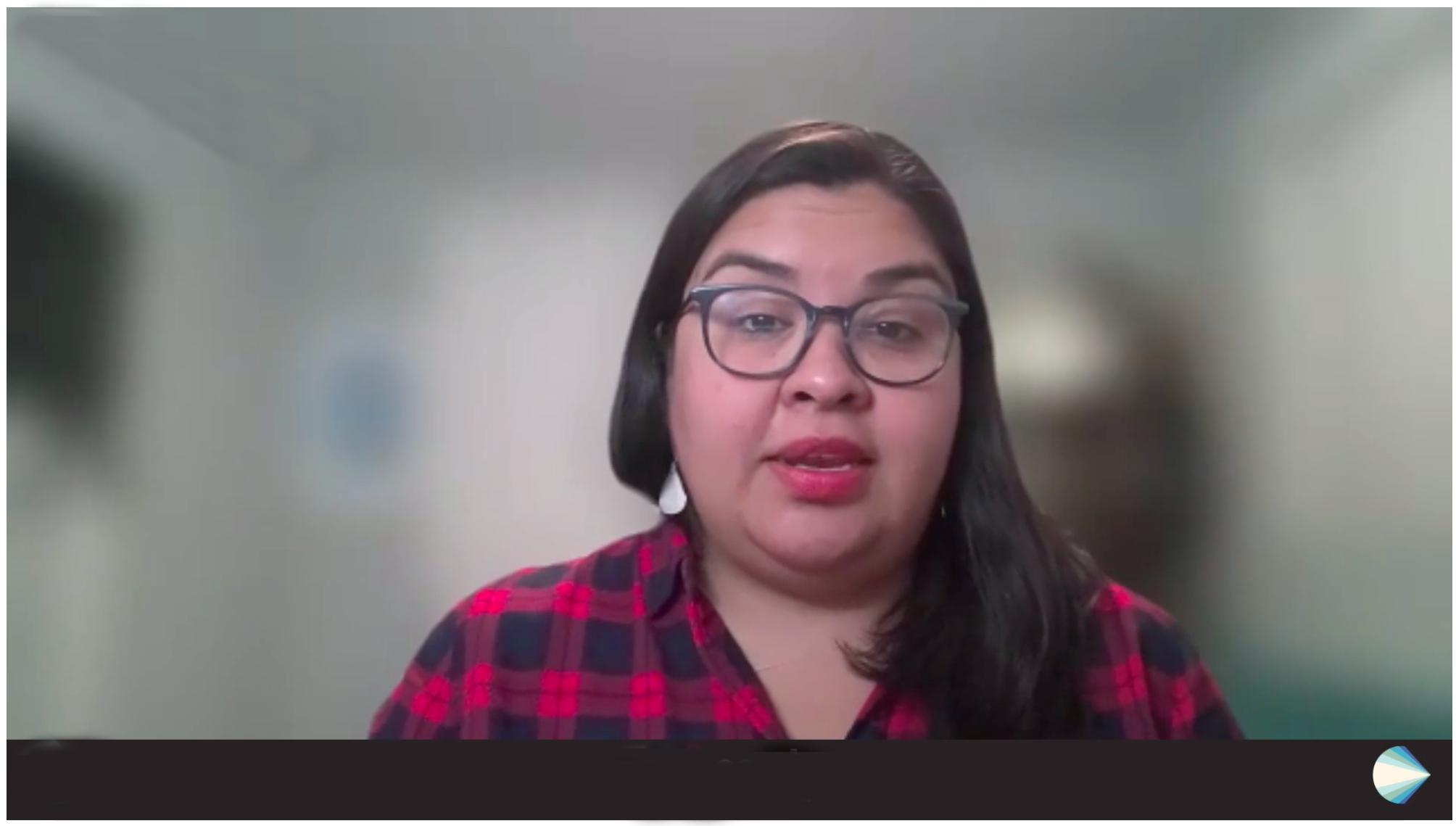
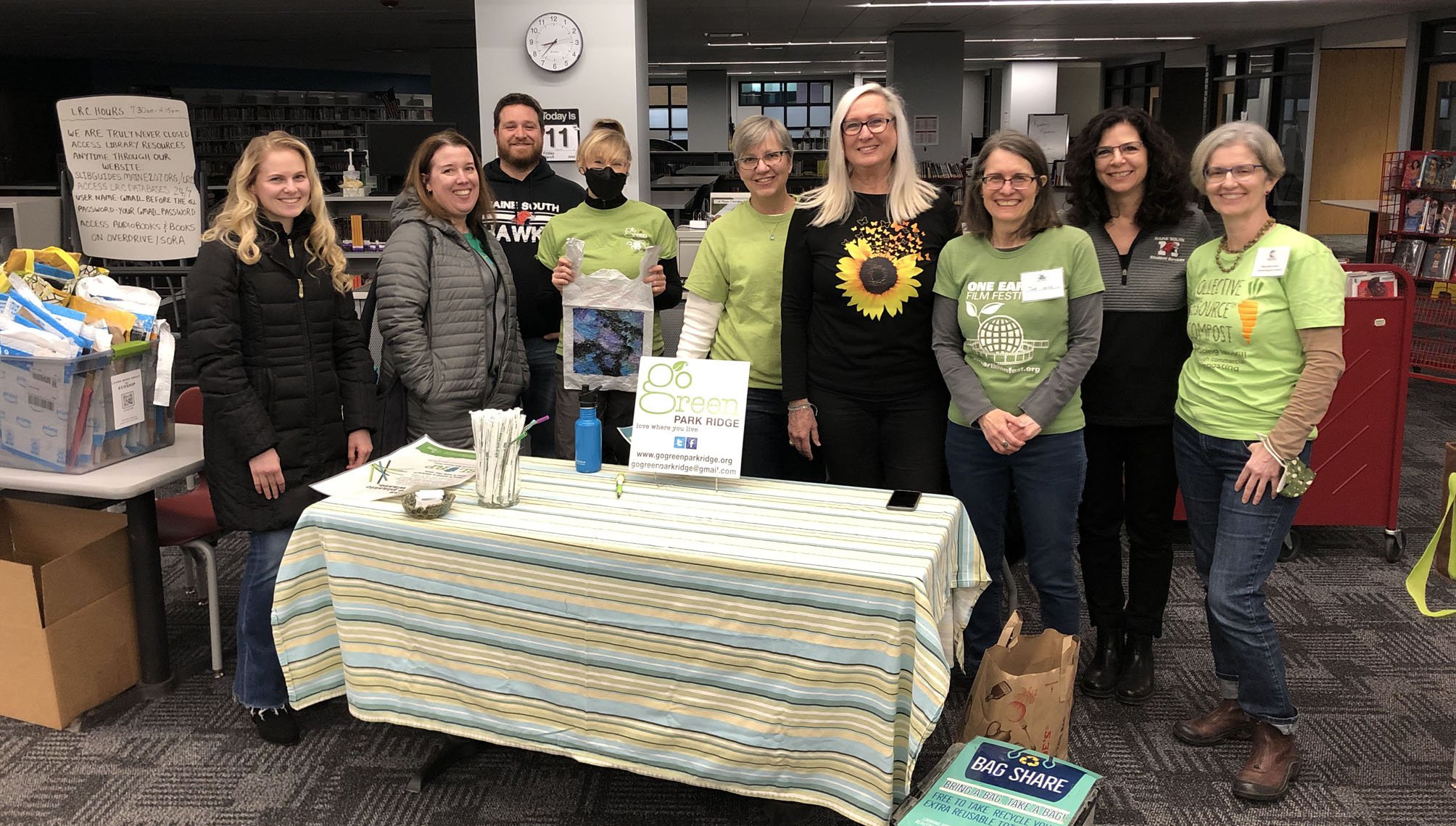

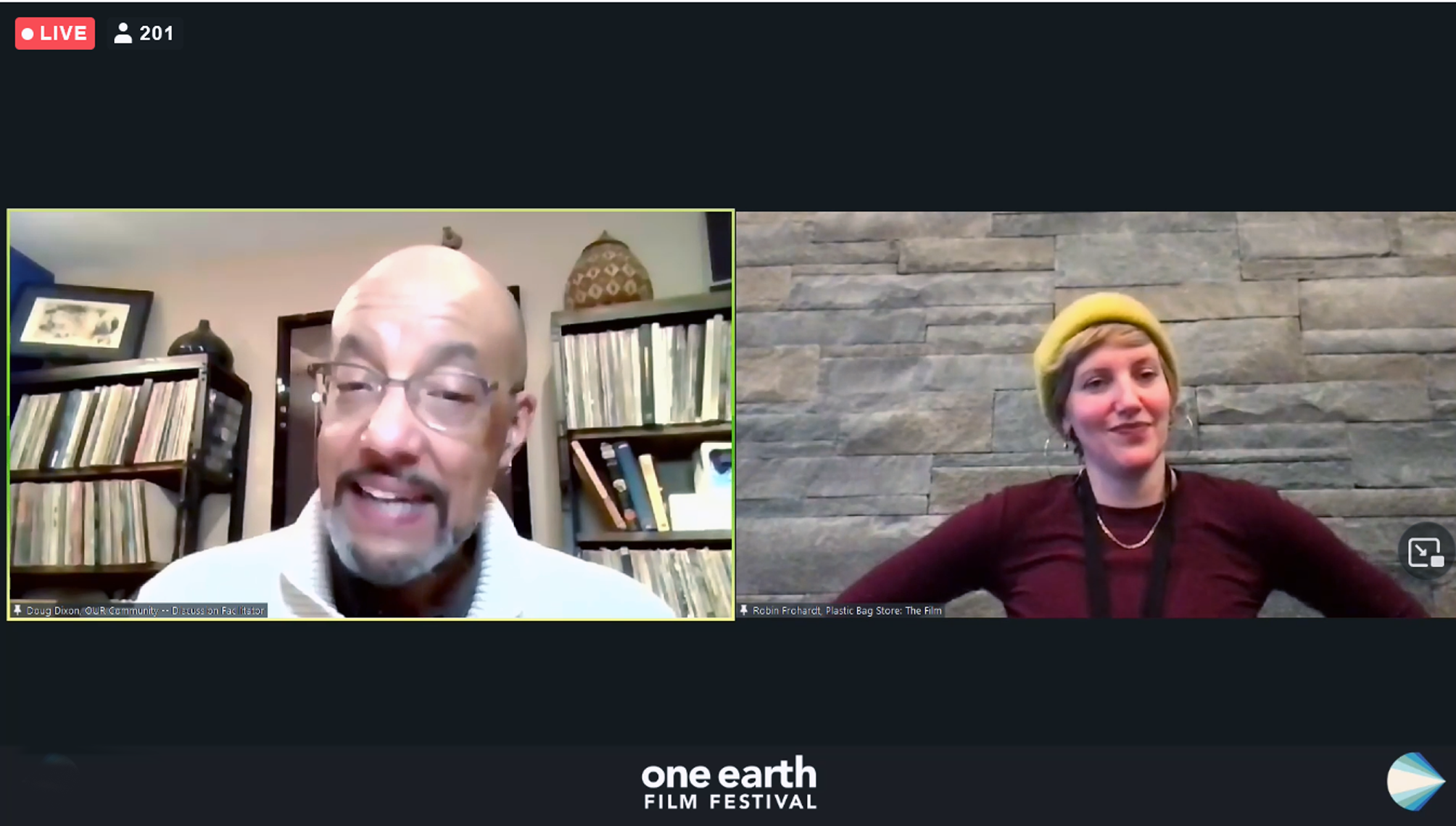
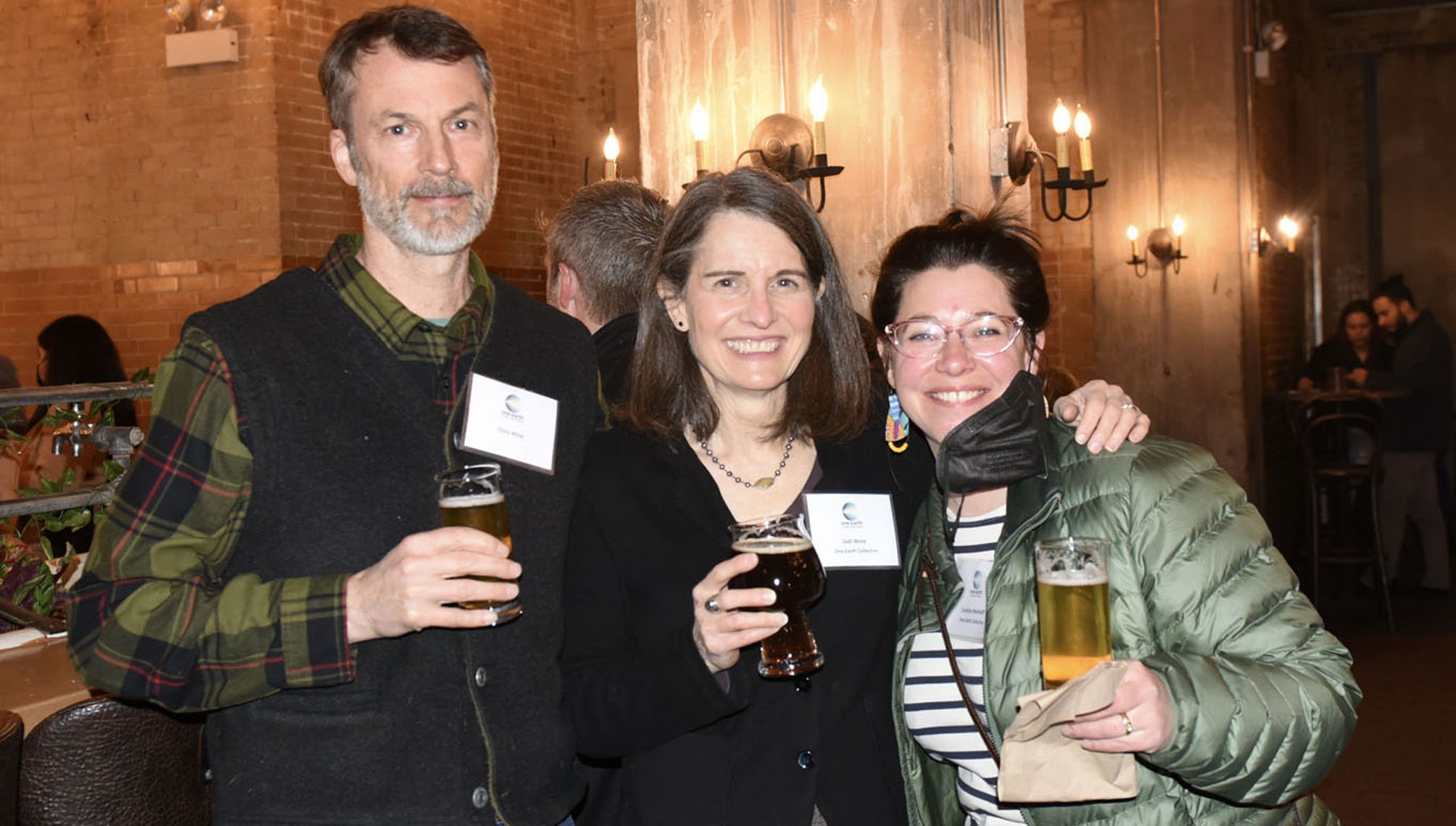
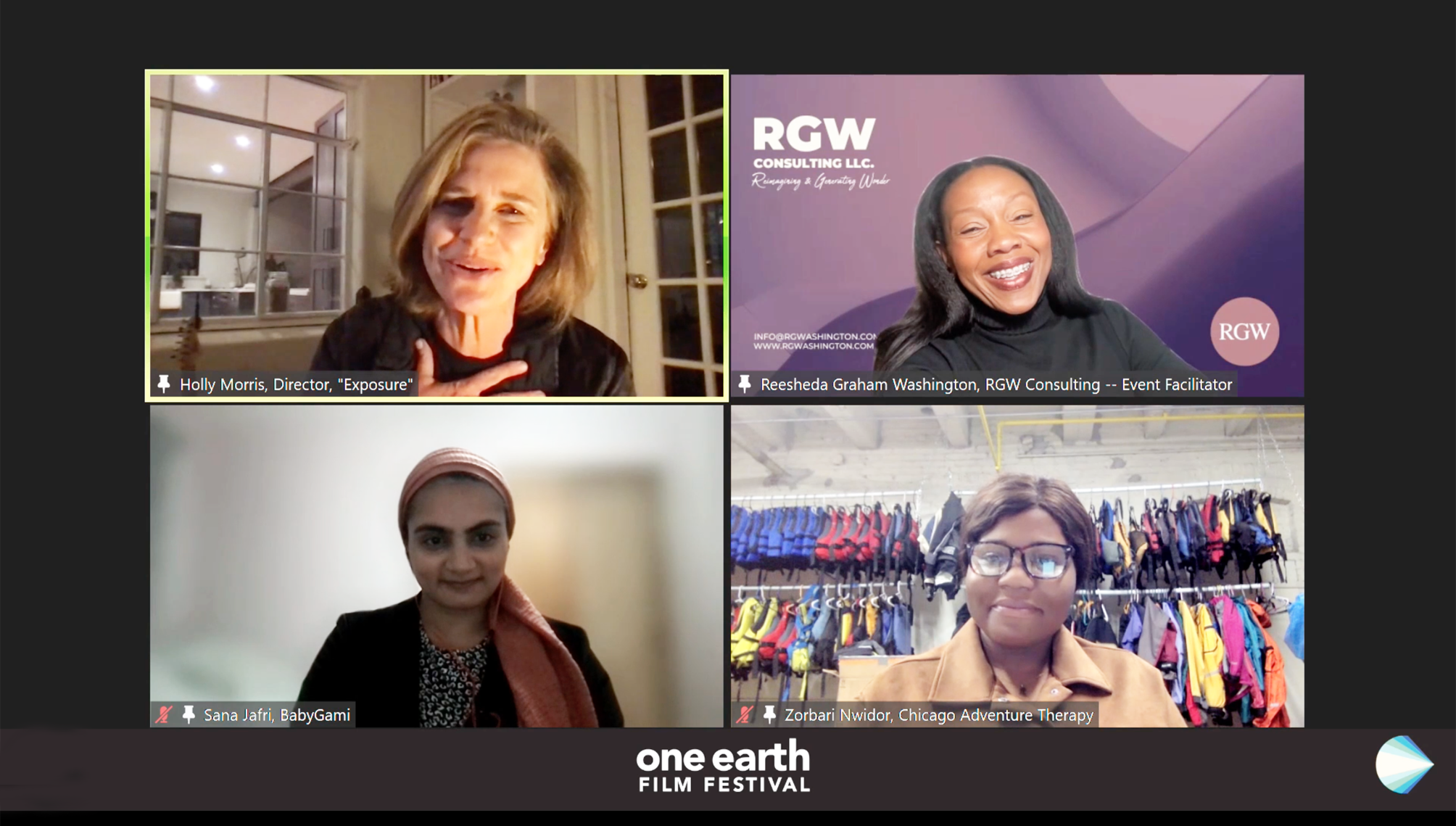
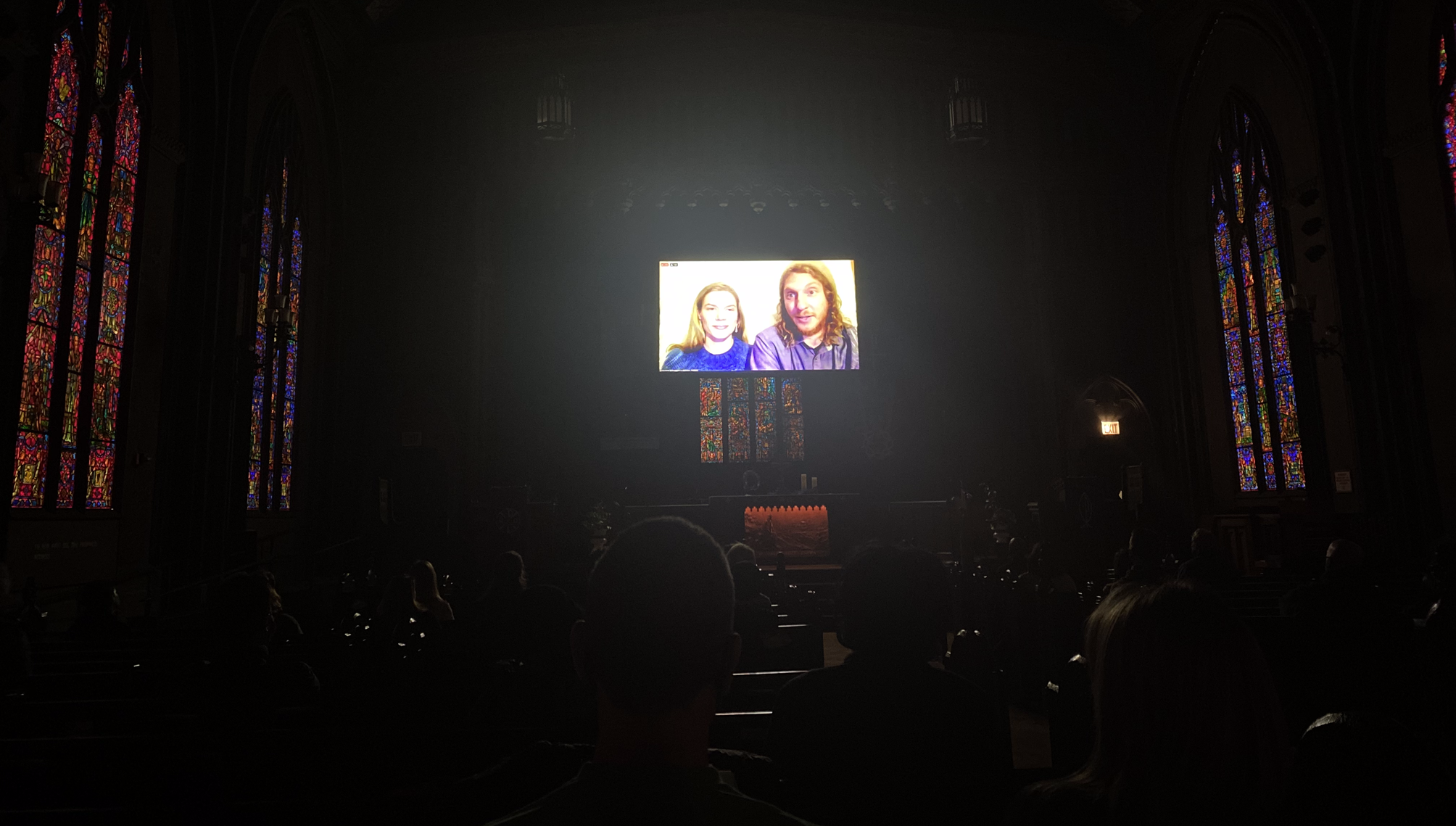
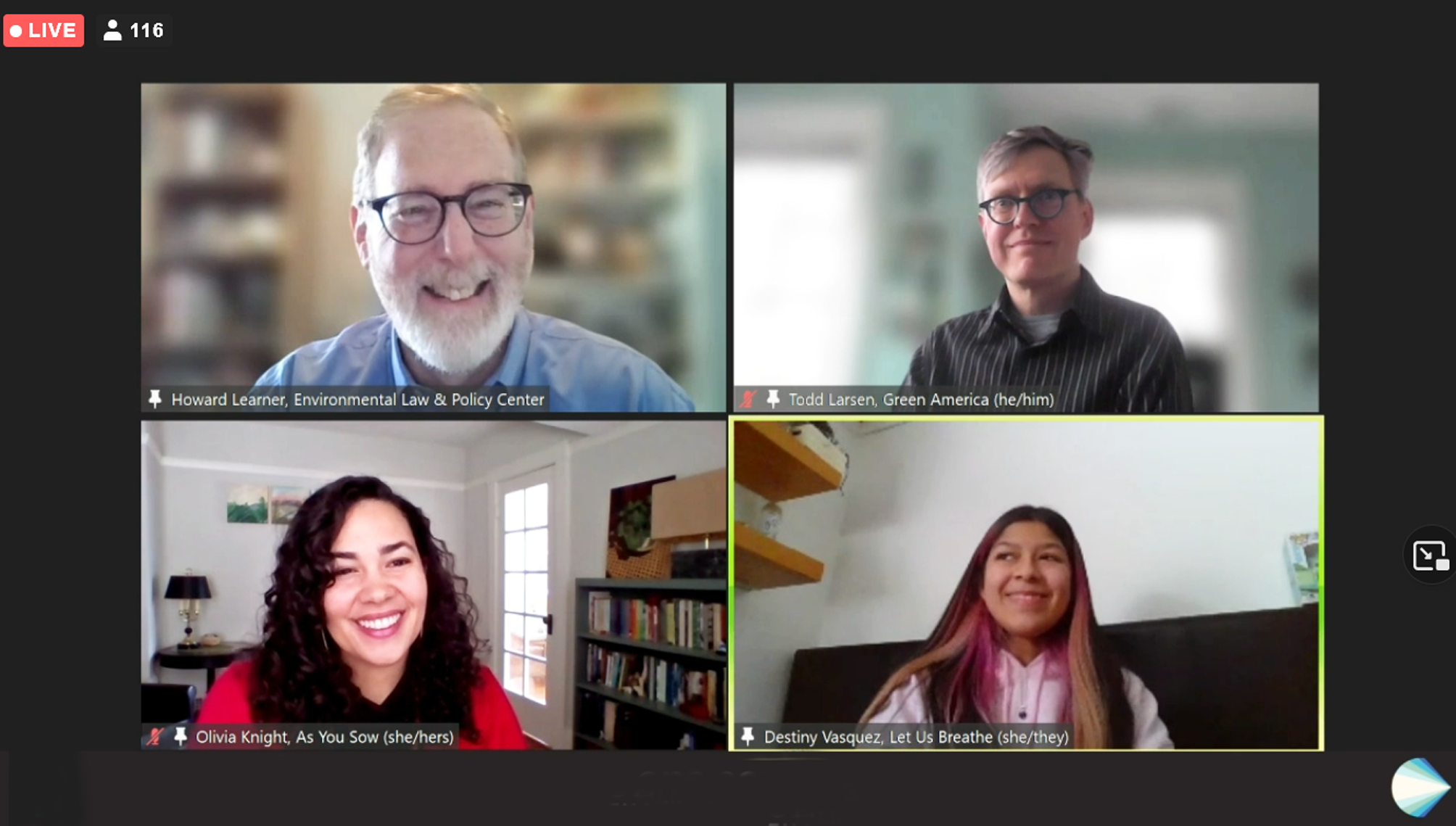
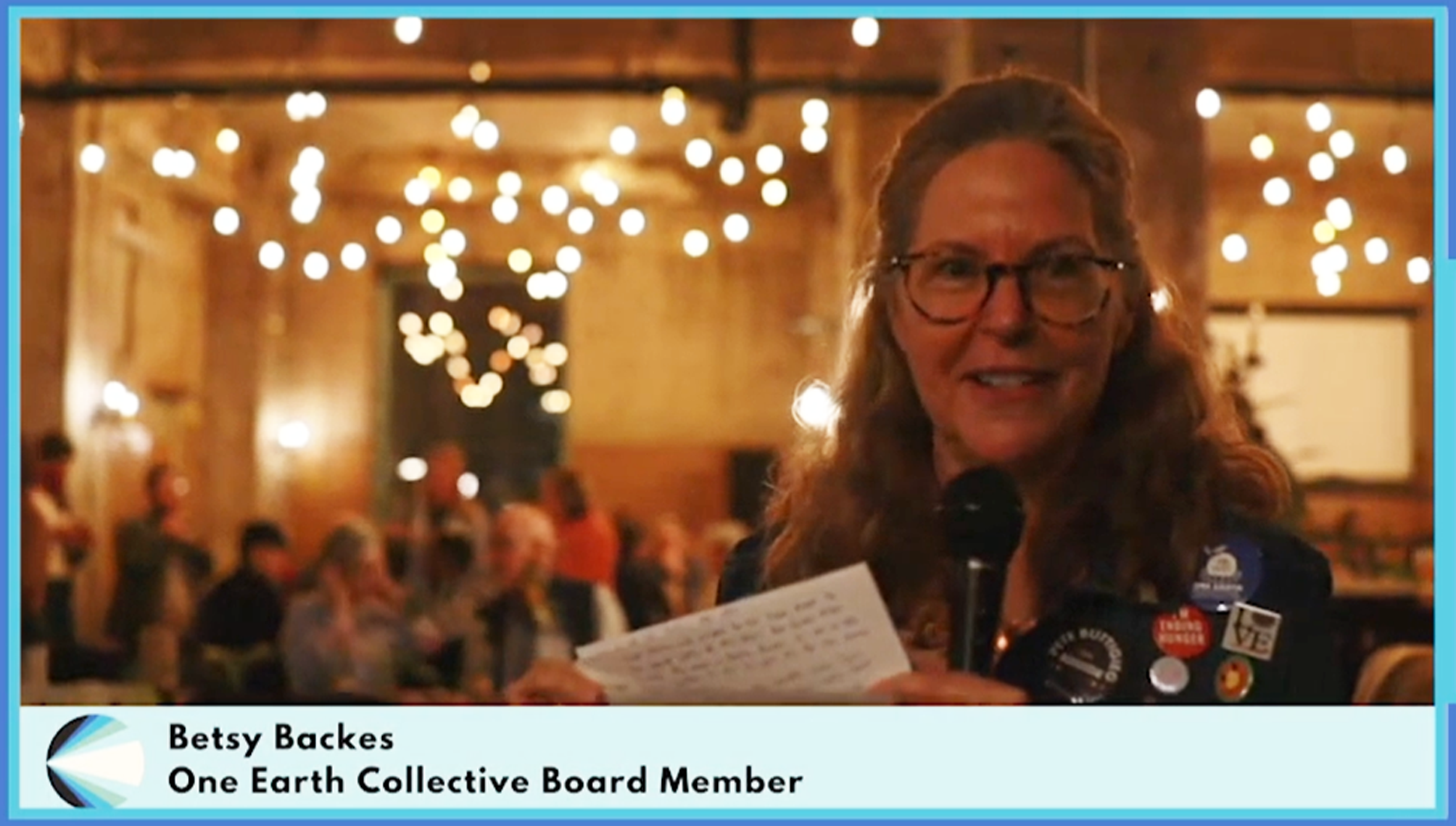
By Cassandra West
In the two years since the pandemic forced a pivotal shift, One Earth Film Festival didn’t retract. In fact, it grew and is now reaching audiences well beyond the Chicago area. You might say the festival has become a whole-Earth event.
This year One Earth Film Festival drew viewers from Hawaii, Japan, Africa and Australia as well as California, Massachusetts, Kansas and many other states. That meant that more people could be moved to take action—to “Turn the Tide.”
Bill and Laura Reilly helped kick off the Film Fest on Friday, March 4, at The Plant.
Over 10 days in early March, the Festival’s 28 virtual and in-person programs highlighted the urgency of the global climate crisis and the need for individuals and communities far and wide to take action on changing the planet’s catastrophic course. In essence, “Turn the Tide,” the festival’s 2022 theme. One Earth believes film is a way to encourage people to make change.
“One Earth Film Festival has a different model,” said longtime facilitator and festival supporter Doug Dixon before introducing this year’s “blockbuster” film, “Plastic Bag Store: The Film,” which screened virtually and simultaneously in four Chicago-area locations to more than 500 viewers. “We think that films are an excellent way to stimulate ideas, stimulate feelings and that those feelings can lead to action. And that's the point of the One Earth Film Festival: to show topical and impactful films that hopefully lead to action to help us stop the degradation of this planet.”
“Tell stories to remind us that we are nature itself.”
For the first time since 2020 and as COVID restrictions eased, One Earth held its annual filmmakers toast and launch party as an in-person event. The sold-out event featured a pre-recorded filmmakers panel moderated by Jenn White, host of WAMU and NPR’s nationally syndicated daily talk show, “1A,” award-winning short films from the Young Filmmakers Contest and, at last, a chance for guests to be together in the same space.
Mixologist Denisse Soto created the beverage ‘Oceania’ for the opening toast to kick off the Fest.
The launch was also streamed live for those who preferred to participate remotely and mix the official festival cocktail, “Oceania,” at home. While in-person guests ended the evening with pizza and drinks at the adjoining Whiner Beer Company, Betsy Backes, One Earth Collective board member, stayed on camera interviewing The Plant founder John Edel and Brian Taylor, Whiner co-founder and brew master, and then playing Turn the Tide Trivia with three action partners and the at-home audience.
What was clear during the evening, as Angela Tovar, chief sustainability officer for the City of Chicago remarked to festival executive director Ana Garcia Doyle, what One Earth does is “community organizing.” Said Ana, “I took this to be a huge compliment.”
All of this organizing takes months of work and collaboration. The pivot that happened in 2020 pushed festival planners to investigate and test technologies that could replicate, as much as possible, its finely honed, in-person experiences.
“After a small glitch, we figured out our technical and programming setup, and are now a truly, fully, hybrid festival,” says Ana. “Hybrid will probably always be in our future, to service the growing number of folks in the One Earth community who are outside of the Chicago region.”
Betsy, who is in her first year as a board member of One Earth Collective, the festival’s parent organization, echoes that point: “Having been at in-person launches in the past, and then the fully virtual festival of 2021, I was impressed by how effectively this year’s launch knitted the two together. I suspect that the hybrid model is here to stay.”
This hybrid model has several advantages. People can watch from anywhere, reducing their use of fossil fuels. More people can be accommodated in “virtual rooms.” Also this year, One Earth publicized the festival on podcasts heard on Pandora and iHeartRadio, allowing it to reach even more people across the U.S. One Earth now has a public group on the social platform MeetUp, where people can register for events and connect with others.
Based on feedback from viewers, One Earth is helping open eyes to environmental injustices and climate realities.
One viewer said the festival has allowed her to see up close “the reality that Black and Brown people everywhere” face from environmental threats—and the action required to mitigate them.
Another viewer said: "OEFF continues to grow, evolve, inspire. You are a model of how we can transform as individuals, organizations and communities. I am in awe of what you all do to heal our world. Thank you.”
Early Childhood Educator Wendy Negron interviewed Adia from Kilmer Elementary School and Jasmine from The Children’s School after screening 3 short children’s films.
One Earth remains committed to being inclusive, and that means reaching those as young as 3 through events like the Young Children’s Short Film program. Partially supported by a grant from the Illinois Arts Council Agency, this year’s Short program featured two “young green leaders” (3rd and 4th graders) in dialogue with facilitator Wendy Negron and the audience. The green leaders “were amazingly astute, super cute, and very wise” in their comments and observations, Ana noted.
The Young Filmmakers Contest held a one-of-a-kind virtual event, hiring former contest winner Adam Joel to create a parody of the hit TV Show Shark Tank. Along with Daniela Aguilar and Vinny Thomas, they pretended to be billionaires magically handing out checks through the screen to young filmmakers from California to Massachusetts to Florida.
A key feature of all festival programs is the opportunity for audience members to comment on the film’s impact on them and offer action ideas. As Doug said, “The more we engage, the more we're all force multipliers.”
Recordings of 2022 watch party discussions are now online for viewing anytime, with access information and links to the associated films. The expectation is that the reach of this year’s festival will continue to spread and encourage more people to help “Turn the Tide.
Want to keep learning? You haven’t missed your chance for more amazing films, engagement and solution-oriented actions as our April Earth Week Mini Fest –put on with the City of Chicago – is fast approaching. Learn more here.



